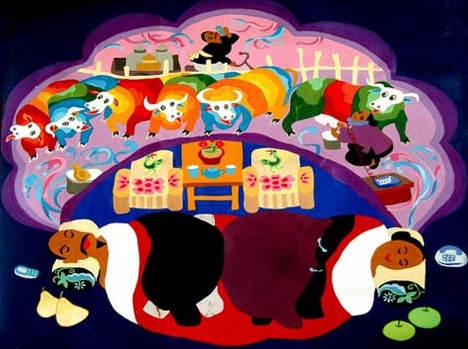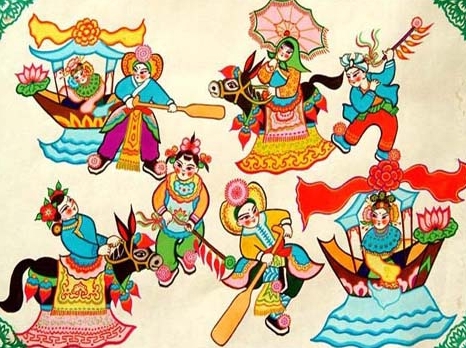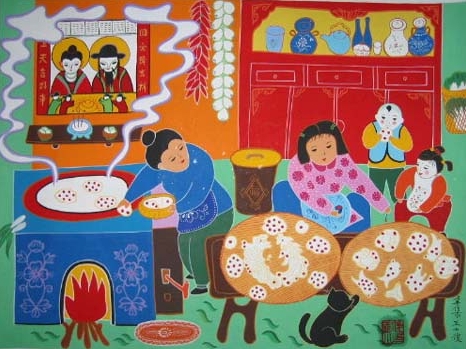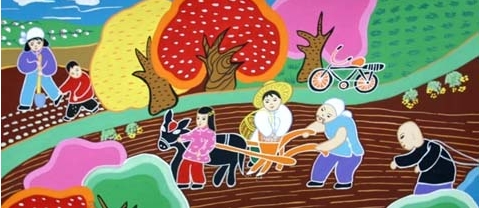


XinJi Peasant Painting of Shi Jiazhuang City dates back to the ancient times with distant source and long stream. Early in the Ming and Qing Dynasties, people here had the tradition of drawing, embroidery, cutting, plaiting and so on. In the 1950s, frescoes representing XinJi Peasant Painting as the main form are refreshing, simple and natural, covering many themes. Coming to the 1960s, it developed to be polished and emphasized on sculpts. Since 1970s, it has been devoting to depict life and has a distinct local character of being simple, straightforward, unsophisticated, bright and colorful.

It has a variety of themes. It is full of local flavor and exquisitely conceived, which express the printer's aspirations; the brushwork is refined and delicate, not restricting to just one style; the use of color is dense and bright and gorgeous, which manifests great artistic charm. It draws the nourishment of paper-cut, folk printing and dyeing, local operas and so on, forming a distinct style of being "unsophisticated and simple, suiting both refined and popular taste".
In February, 1987, after its debut in China Art Museum, it is exhibited in Hong Kong, France, Mexico embassy in China, Germany, Australia, America, Italy, Sweden, Demark, Australia and some other 30 areas and countries, arousing strong responses. In 1988, the Ministry of Culture named it as "the Hometown of China Modern Folk Painting".





